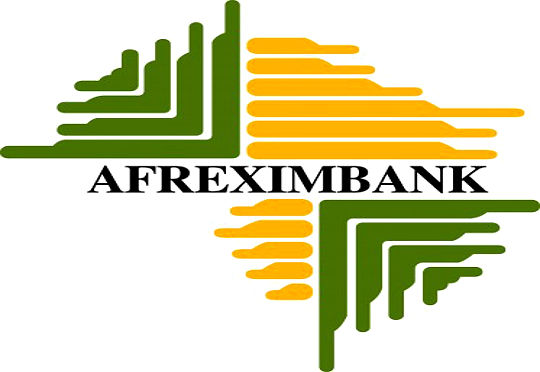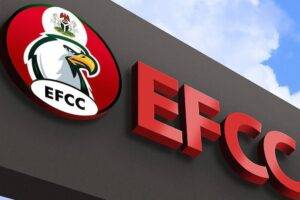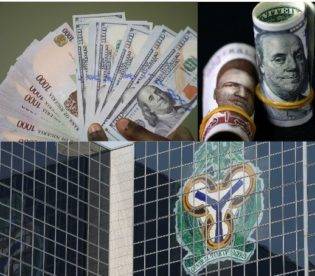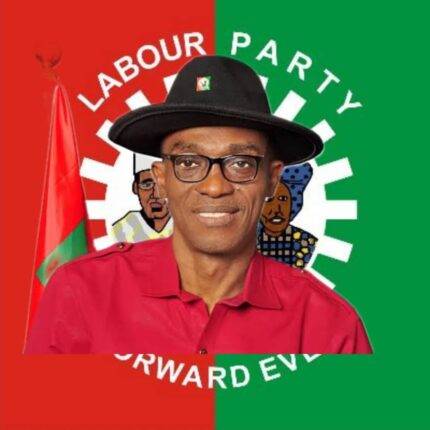In a significant move to combat the persistent foreign exchange scarcity in Nigeria, the federal government has at last obtained $2.25 billion out of the $3.3 billion FX facility from the African Export–Import Bank (Afreximbank). The prolonged wait for this credit support, aimed at mitigating the acute FX shortage, has been a point of concern as it significantly constrained economic activities and cast a shadow on investors’ confidence.
President Bola Tinubu had earlier reassured the nation in December about the administration’s unwavering commitment to resolving FX backlogs through the infusion of funds into the market. The arrival of the initial tranche, reportedly credited to the federal government’s account, signals a crucial step towards alleviating the ongoing financial strain experienced across various sectors.
This long-anticipated financial injection not only addresses the pressing need for liquidity but also heralds a promising outlook for the economy. The timely intervention promises to revive economic activities and bolster investor trust, crucial components for sustainable growth in Nigeria’s economic landscape.
Collaborative Efforts and Diverse Participation in Alleviating FX Shortage
Afreximbank’s role as the lead arranger in the $3.3 billion loan signifies a concerted effort to alleviate the foreign exchange crisis in Nigeria. Notably, diverse entities such as VITOL, Guvnor, Sahara Energy Group, Oando, and the United Bank for Africa (UBA) have contributed to this essential initiative. UBA, in particular, stepped in with a significant $100 million contribution, further demonstrating the commitment of both local and international financial entities to address Nigeria’s foreign exchange challenges.

The participation of these sub-lenders reflects a collaborative approach to tackling the foreign exchange shortage issue. Their involvement not only diversifies the sources of financial support but also underscores the confidence placed in the Nigerian market’s potential for recovery. Such collective efforts emphasize the significance of international collaborations and local participation in steering the country towards economic stability.
Future Prospects and Prioritizing Foreign Exchange Backlogs for Economic Resurgence
With the initial $2.25 billion tranche secured, attention now turns to the forthcoming $1.05 billion balance, expected to be disbursed next week. The impending release of this remaining amount highlights the government’s steadfast dedication to swiftly resolve the lingering FX backlogs. This step remains pivotal in fostering an environment conducive to economic growth and attracting investment opportunities.
This strategic move not only aids in stabilizing the FX market but also serves as a catalyst for reinforcing investor confidence and stimulating economic activities. The concerted efforts by both governmental and financial institutions to prioritize addressing foreign exchange challenges underscore a shared commitment towards ensuring sustained economic recovery and growth in Nigeria.

The successful receipt of the substantial FX facility, coupled with the imminent release of the remaining balance, sets an optimistic trajectory for the nation, heralding a potential resurgence in economic activities and renewed investor trust.
Economic Turmoil and Chronic Dollar Shortages
Nigeria, a country deeply intertwined with the fluctuating tides of the oil market, finds itself embroiled in a tumultuous financial landscape. The nation’s economy has weathered chronic dollar shortages exacerbated by a mass exodus of foreign investors during a period marked by low oil prices. Despite the passing of time, the awaited return of these investors remains elusive, exacerbating the currency woes. The Central Bank of Nigeria has been unable to address the persistent and looming issue of unfulfilled dollar demands, primarily stemming from foreign investors’ attempts to repatriate funds and airlines grappling to transfer revenue garnered from ticket sales abroad.
The repercussions of these shortages have reverberated through various sectors, compelling certain businesses and individuals to seek alternatives in the unregulated black market. This migration has consequently precipitated a staggering decline in the value of the naira, setting new benchmarks of depreciation against major currencies and significantly amplifying the divergence between the official exchange rate and the black market’s valuation.
Table of Contents
Discover more from OGM News NG
Subscribe to get the latest posts sent to your email.














